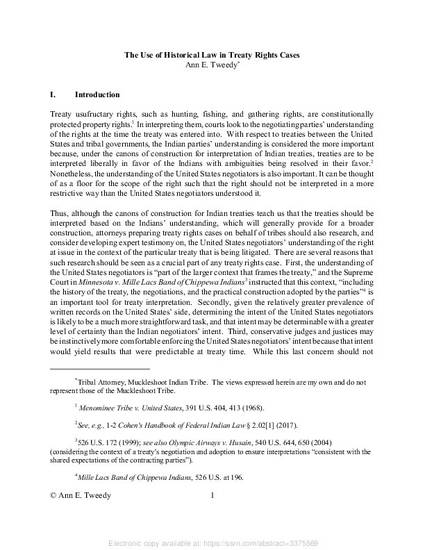
Article
The Use of Historical Law in Treaty Rights Cases
ABA Section of Environment, Energy & Resources 37th Water Law Conference materials
(2019)
Abstract
This paper examines the potential contributions of historical law to treaty rights cases, looking specifically to the use of such law in the Culverts Case and in a currently pending tribal hunting case, Herrera v. Wyoming. It demonstrates the benefits that historical law can confer on tribal clients, while also discussing some of the reasons that tribal clients may be reluctant to invoke it. It concludes that, at a minimum, lawyers representing tribes in treaty rights cases should research the laws that existed at the time that the treaty was entered into and should consider developing expert testimony on such laws.
Keywords
- treaty rights,
- common law,
- historical law,
- canons of construction,
- environment,
- hunting rights,
- fishing rights,
- culverts,
- United States v. Washington,
- legal history,
- Herrera v. Wyoming,
- Herrera,
- Crow Tribe,
- Boldt decision,
- tribal advocacy,
- litigation strategy,
- environmental law
Disciplines
Publication Date
March, 2019
Citation Information
Ann Tweedy. "The Use of Historical Law in Treaty Rights Cases" ABA Section of Environment, Energy & Resources 37th Water Law Conference materials (2019) Available at: http://works.bepress.com/ann-tweedy/54/
